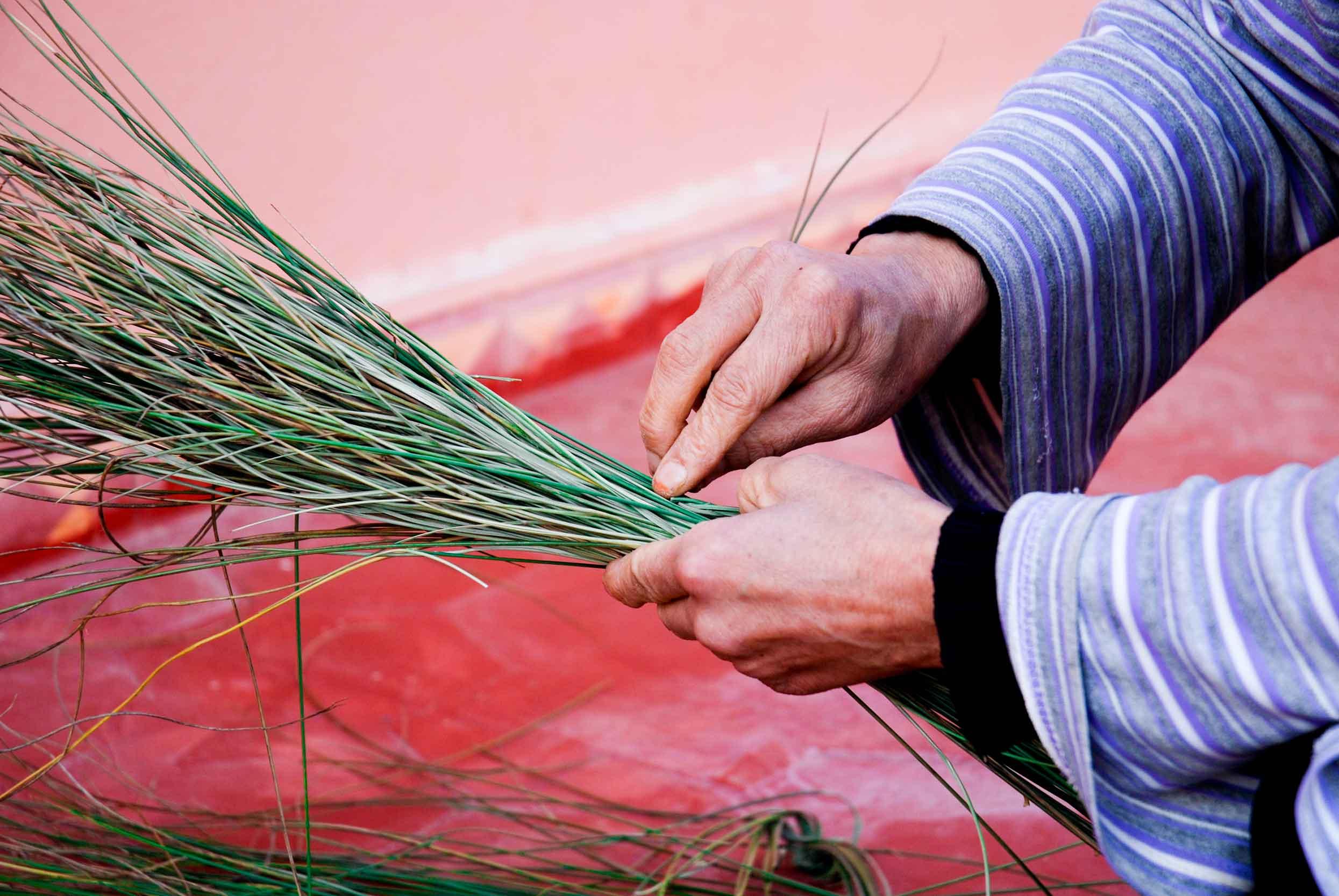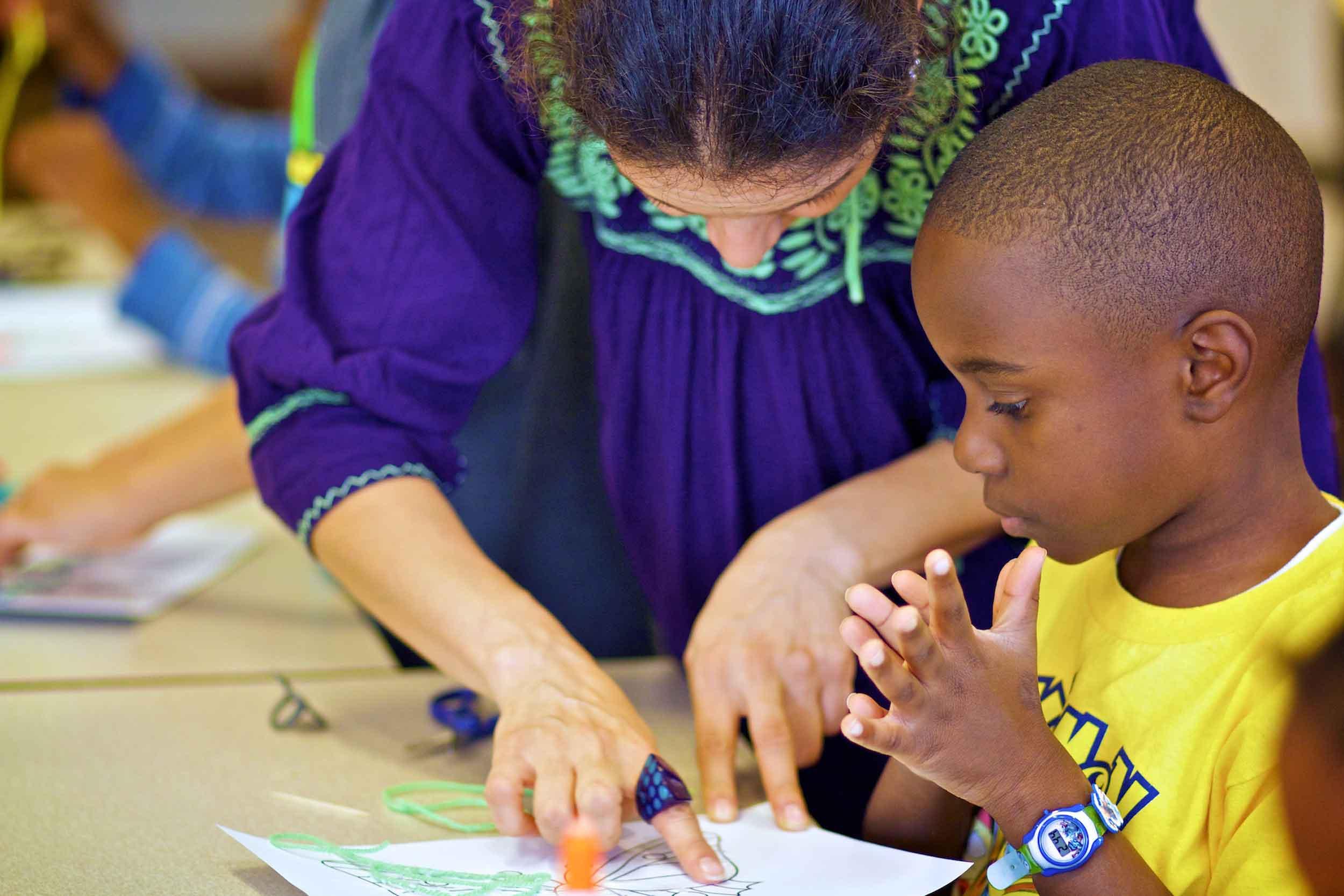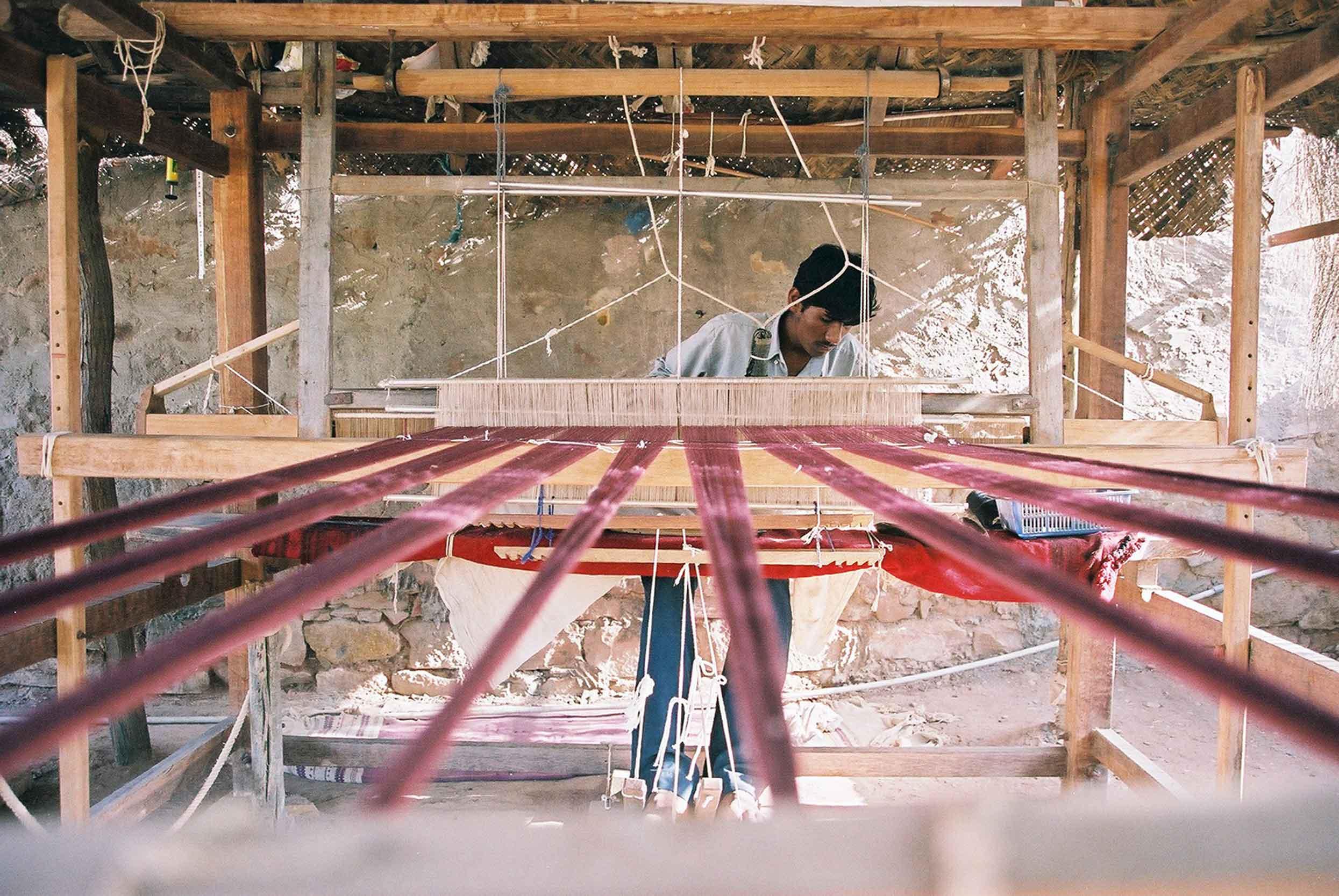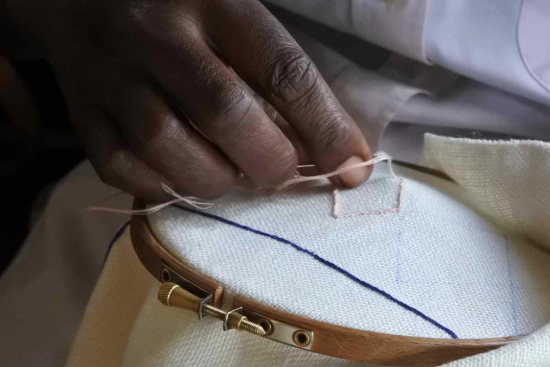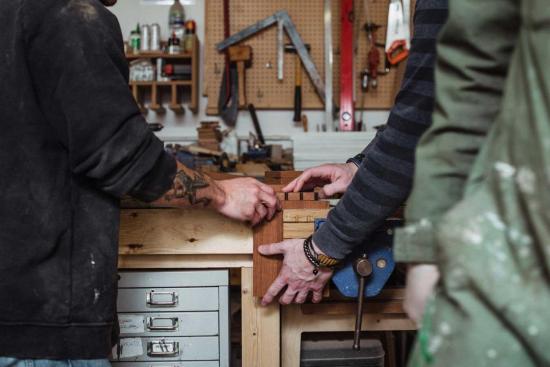Several projects selected for the first edition of H³ reflect the Foundation’s commitment to sustaining traditional artisan skills.
In France, the Liger association organises apprenticeships in the Ardèche region to transmit broom thatching or lauze slate-tile roofing, two traditional techniques that respect the area’s biodiversity.
In the Loire département, the Cildéa association has created an organic produce farm that welcomes unemployed people and helps them regain confidence in a new professional context.
In Haïti, Entrepreneurs du Monde designs storm-proof structures using locally sourced materials as much as possible. Training sessions are organised to transmit the skills related to this method of construction.
In Italy, the Canova association promotes the restoration of stone architecture throughout the world. Volunteers discover ancestral techniques with the help of local craftspeople.
In Como, the Cometa cooperative offers adolescents workshop apprenticeships alongside specialist craftspeople. Such training simultaneously provides valuable skills to young people whilst helping to sustain a declining artisan sector.
Craft and retraining are at the heart of the e.s.t.i.a. cooperative’s mission. After completing a carpentry course, the inmates of the Milan-Bollate prison work alongside craftspeople in a workshop. The objects they create using plans by young designers then go into commercial production.
In India, the Khamir platform promotes the traditional and multicultural crafts of the Kachchh region. Through training and exhibitions, it encourages younger generations in particular to learn the craft skills of their communities and make them their own.
In Burundi, the Solibu association is helping establish a farm that produces spirulina, a kind of algae which can be used in the fight against malnutrition.
From this first H³ call for projects, the Foundation also chose to support several programmes whose actions help disadvantaged children and disabled people by broadening their professional horizons.
In France, the Equestrian Centre of Haute Ehn in Obernai welcomes adolescents experiencing educational difficulties as part of a work-linked training programme, and offers them the chance to envisage future careers in the equestrian sector.
In the United States, the Cara Mia Theatre company in Dallas has created The School of Yes! for young people unable to afford an art school education. Recognised artists oversee various classes and the works produced by the school’s students are presented publicly.
